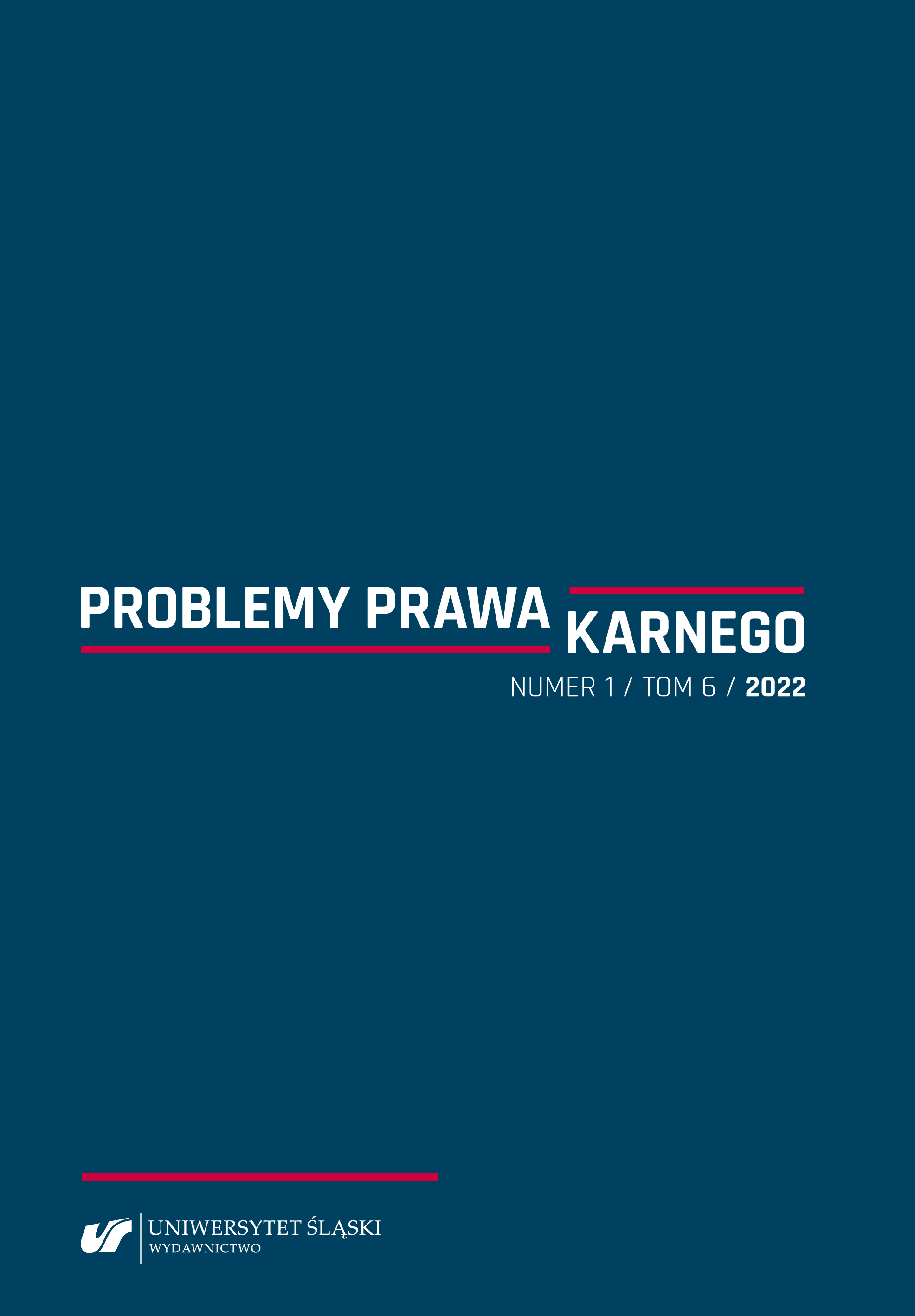Kolizja aksjologiczna prawa karnego z prawem upadłościowym jako skutek zmiany tytułu rozdziału XXXVI Kodeksu karnego
Collision between criminal law and bankruptcy law as a consequence of the change in the title of Chapter XXXVI of the Criminal Code
Author(s): Dariusz GrabarekSubject(s): Business Economy / Management, Constitutional Law, Criminal Law, Civil Law, Penology, Commercial Law
Published by: Wydawnictwo Uniwersytetu Śląskiego
Keywords: business trading; civil law transaction; bankruptcy; insolvency; debt removal; penalty; axiology collision; subsidiarity of criminal law
Summary/Abstract: The specific legal benefit of the respective provisions of the Penal Code indicated in the title of the special chapter of the Code implies the type of legal benefits contained therein. Since May 25, 2019, the legislator, by amending the title of Chapter XXXVI of this Code as following: ‘Crimes against economic turnover and property interests in civil law transactions’ has extended the generic object of protection, as a result of which it is no longer relevant whether the respective conduct takes place in economic turnover (as previously) or in civil law turnover, in which non-professionals will appear on both sides. The Supreme Court noted that this would cause an inevitable revolution in the interpretation of the provisions of this chapter. Among other things, this applies to the crimes specified in Art. 301 of the Penal Code, sanctioning the debtor’s bankruptcy or insolvency, therefore penalisation, as a subject of a crime, will also apply to the “consumer”. At the same time, the legislator in the insolvency law, and more specifically in the Bankruptcy Law, opened access to debt relief also to those debtors “consumers” who led to their insolvency or significantly increased its degree intentionally or through gross negligence. There is a possibility of reduction of liabilities even if such a debtor acted deliberately. The author showed that this resulted in a discrepancy between criminal law and bankruptcy law, as well as an axiological collision in the legal system, which occurs when the legislator values a given value higher in one norm than in another, and in the other one does the opposite. In the author’s opinion, some norms will not be derogated by the legislator, and the conflict of laws rules will not apply in this case. It will be necessary to interpret penal provisions based on the paradigm of the presumption of the rationality of the legislator and the subsidiarity of criminal law.
Journal: Problemy Prawa Karnego
- Issue Year: 6/2022
- Issue No: 1
- Page Range: 1-18
- Page Count: 18
- Language: Polish

